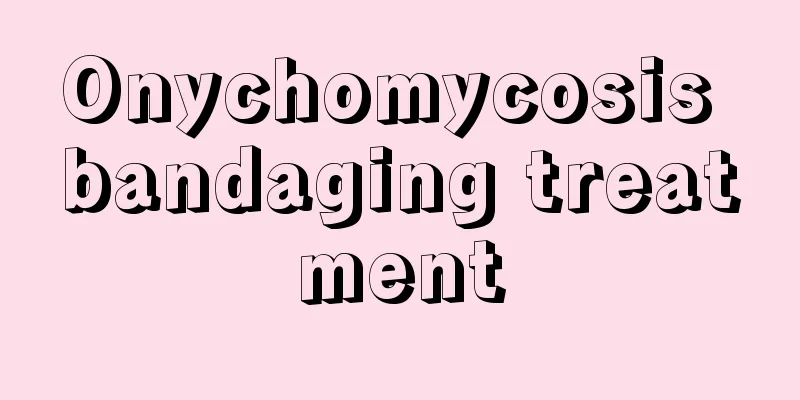Will there be any sequelae after fainting due to fever

|
Fever may seem like a minor problem, but it can actually lead to serious sequelae. Because when people have a fever, their physical problems are quite serious. If the temperature cannot be lowered in time, our nerves may be damaged. This may cause the child's brain to be burned and affect his or her intellectual development. Therefore, as a responsible parent, we must pay attention to children's health issues and avoid harming them. Typical febrile seizures (simple febrile seizures) have the following characteristics: ⑴ Mostly seen in children aged 6 months to 3 years, occasionally seen in children aged 4 to 5 years, and rarely seen after 6 years old; ⑵The child usually has a good physical condition; ⑶ Convulsions often occur at the beginning of the disease when the body temperature rises suddenly to ≥39°C, which is common in acute viral upper respiratory tract infections; ⑷ Convulsions are systemic, infrequent (most cases only have one convulsion during a fever), short in duration (a few seconds to 10 minutes), with rapid recovery and no abnormal neurological symptoms. Simple febrile convulsions have a good prognosis and usually have no effect on intelligence, learning, or behavior. 30% to 50% of children are prone to convulsions when they have a fever in the future, but these seizures usually no longer occur by school age. A febrile seizure with any of the following features is called a complex febrile seizure: ⑴ The age of onset is before 6 months or after 6 years; ⑵The attack lasts for a long time, more than 15 minutes; ⑶Recurrent convulsions during a febrile illness; ⑷ Seizures manifest as localized convulsions ⑸ Temporary paralysis and other nervous system abnormalities after the attack; ⑻ The body temperature at the beginning of the disease is high fever (≥39℃), and after repeated attacks, moderate fever and low fever also cause convulsions; ⑼ The EEG is still abnormal one week after the fever subsides; ⑽There is often a positive family history, and many scholars advocate calling this type "high fever-induced epilepsy." Febrile seizures may turn into epilepsy. Risk factors for this are: ⑴ The original abnormal development of the nervous system; ⑵ Family history of epilepsy; ⑶ The first attack presents symptoms of complex febrile convulsion. If there is only one risk factor, 1-2% will develop epilepsy; if there are 2-3 risk factors, it will be 10%; if there are 2-3 complex symptoms during the first attack (localized convulsions, lasting more than 15 minutes or recurring within 24 hours, neurological abnormalities after the attack), 20% may develop into epilepsy. There is no specific drug for the treatment of complex febrile seizures, but for children who often have recurring seizures, drugs can be used to prevent recurrences. There are two methods: ⑴ Do not take medicine at ordinary times. Use anticonvulsants at the beginning of fever, such as diazepam enema, to reduce recurrence ⑵ Long-term medication (should be used under the guidance of a doctor), phenobarbital or sodium valproate can be taken orally for several weeks to 1 to 2 years. Considering the long-term use and side effects of the drugs, this method should be used with caution. It is recommended that you take your child to a local hospital for treatment. When a convulsion occurs, parents should pay attention to the following: Do not panic to prevent trauma caused by convulsions and falls. If the seizure lasts for a short time, the convulsion will often stop before you have time to do anything. If the convulsion lasts for a long time or recurs, the child should be sent to the hospital quickly to be given medication to stop the convulsion, oxygen, etc. If vomiting occurs after the convulsion stops, the respiratory secretions should be cleared in time to keep the airway open. Prevent seizures: Be careful to avoid upper respiratory tract infections as much as possible. Use antipyretics (such as analgin nasal drops) when an upper respiratory tract infection first occurs. Complex febrile seizures can be prevented by taking medication. It is particularly important to prevent recurrence of complex febrile seizures, because each seizure may cause brain cell hypoxia and affect the child's long-term prognosis. |
<<: Sequelae of hormone-dependent dermatitis
>>: Complications of osteotomy
Recommend
When is the best time to wash your hair? It turns out to be this time period
It is not suitable to wash your hair too early or...
What food to eat in late stage pancreatic cancer
Pancreatic cancer is a very harmful cancer and ha...
What should I do if I get water in my ears and have tinnitus while swimming
Swimming is a very good sport. It can relieve car...
What are the effects of Brazilian enzyme
What are the effects and functions of Brazilian e...
How to use eyebrow powder and eyebrow pencil
Some friends are very dissatisfied with their eye...
3 cases of dietary therapy for lymphoma after radiotherapy and chemotherapy
Radiotherapy and chemotherapy are commonly used t...
Barbecue methods and techniques
When it comes to barbecue, no one is unfamiliar w...
Is erosive gastritis grade 1 serious?
The stomach is the part of the human body that st...
Can cooking salt help sober you up?
Getting drunk is a phenomenon that many people in...
What are the dietary and lifestyle principles after rectal cancer surgery and chemotherapy?
With the progress of the times, people's livi...
Why do I feel like vomiting after eating an apple?
Apples are very nutritious. Many people like to e...
What are the key points of postoperative care for tongue cancer
In this colorful society, people's lives are ...
Benefits of bloodletting at Zusanli
Zusanli is an acupuncture point on the outside of...
What are the precautions after mid-term surgery for esophageal cancer? These four points need attention
After surgery for mid-stage esophageal cancer, th...
Can sun exposure remove formaldehyde?
Formaldehyde is very harmful to the human body. M...









